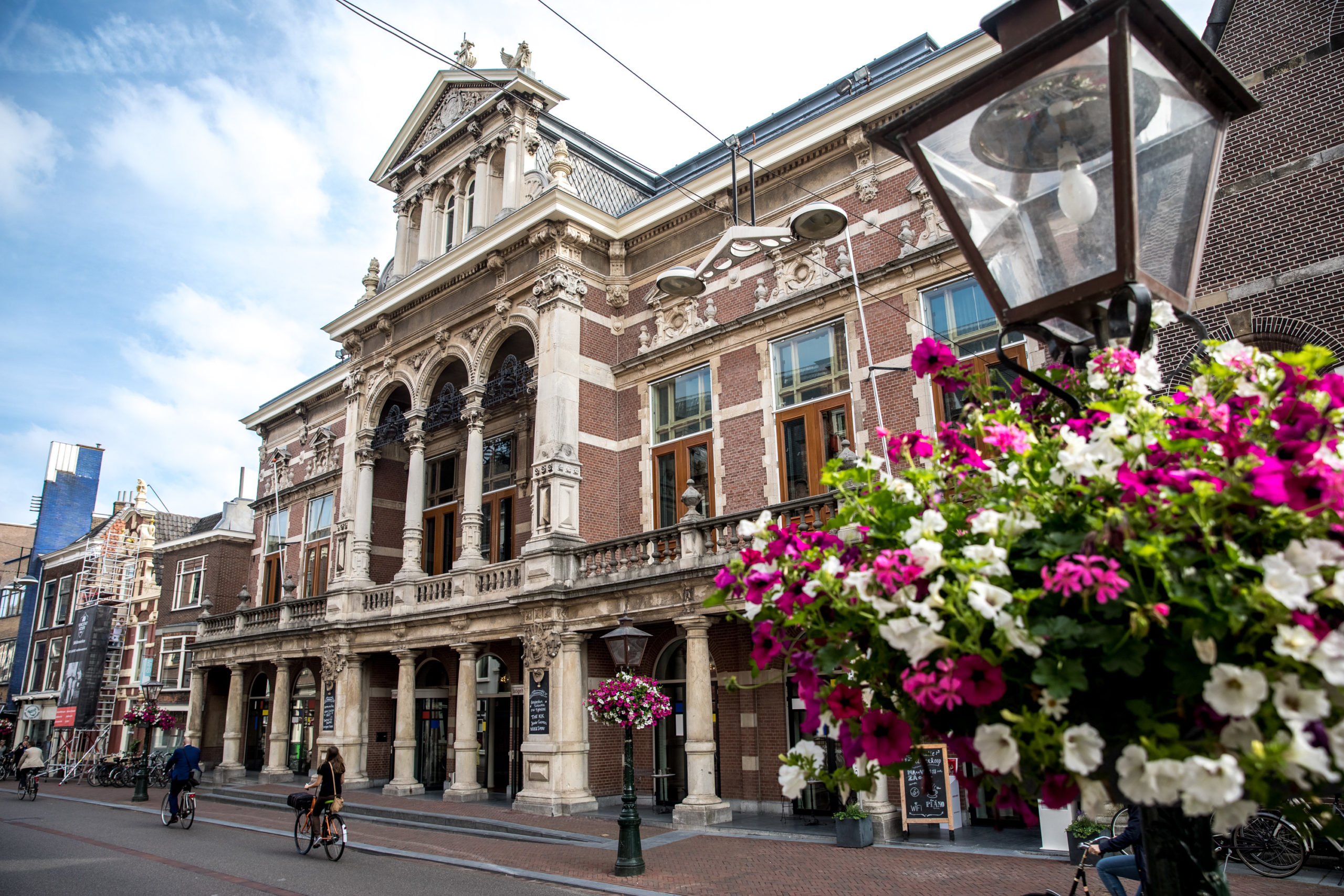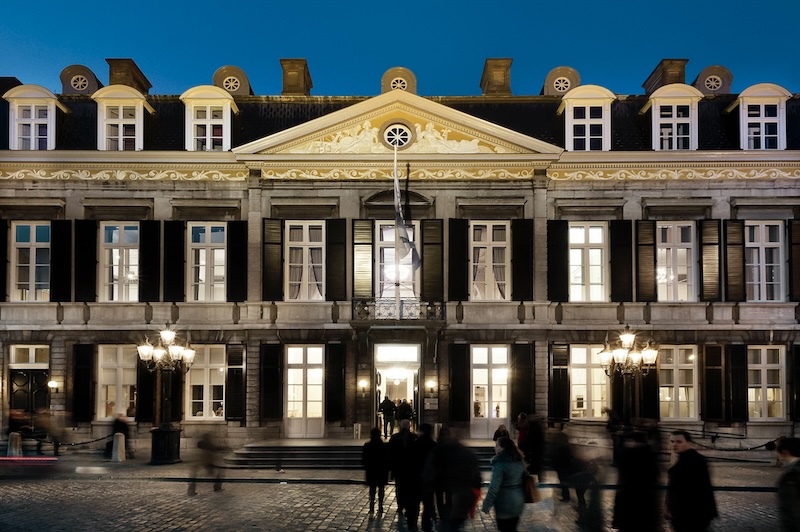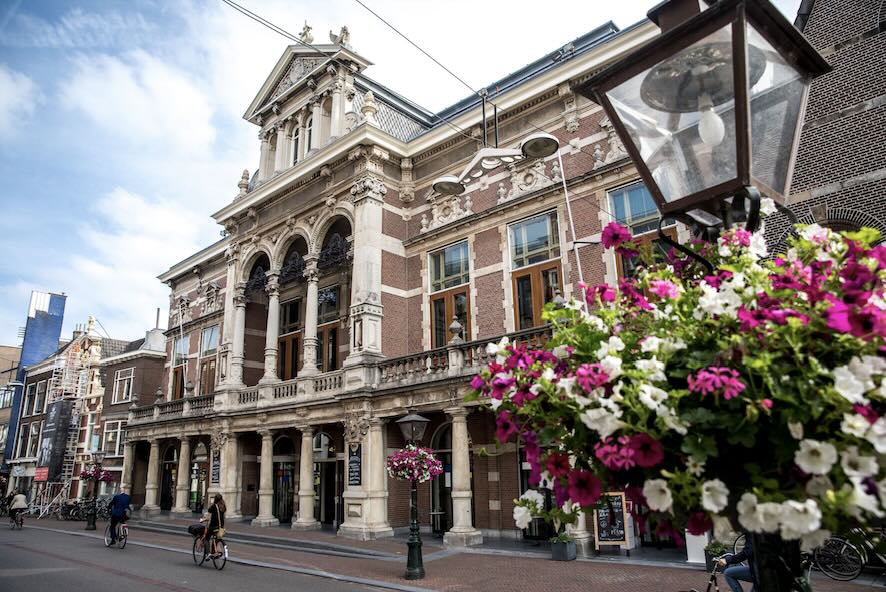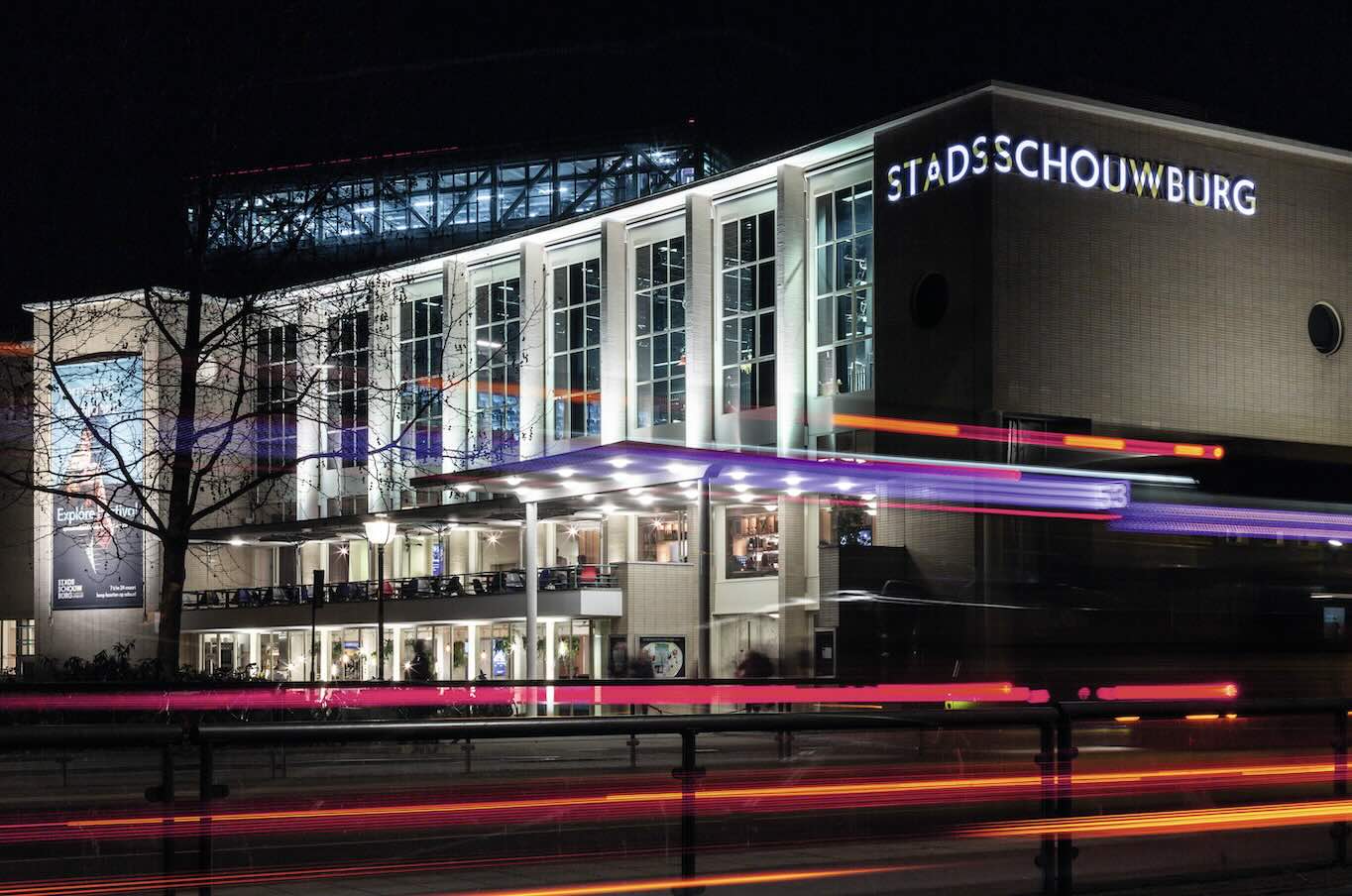Two historic halls, one modern vision
Leidse Schouwburg — Stadsgehoorzaal (LSSGZ) is the cultural heart of Leiden. The Leidse Schouwburg (1705) is the oldest theater in the Netherlands; the Stadsgehoorzaal (1826) is a concert hall where a wide range of music, from baroque to modern, sounds is performed every year. Together, they host more than 600 activities per year: drama, cabaret, youth theater, dance, concerts, workshops and literary evenings.
“We want to bring stories together, from different bubbles, from different ways of thinking,” says Monique Aalbers, program, marketing and ticket sales manager. “Because that’s how you create more understanding for one another.”
This diversity goes hand in hand with an inclusive audience vision. For example, LSSGZ offers a youth price of €12, gives free cards to families with fewer financial options and pays extra attention to accessibility. In addition, by running a crowdfunding campaign a new stage is being built in theater café Cafe Caat where young talent gets space to play.
The need to innovate
Until 2023, LSSGZ worked with a different ticket system, but the team was ready for the next step.
- There was a need for more in-depth reports to better understand who the ticket buyers are and who hasn't found their way to LSSGZ yet.
- In addition, the team wanted to be able to automate more, so that less manual work would be required. “Our organization works with a 300-year-old hall, programs in all genres and also has a concert hall. This requires a system that can effortlessly handle this diversity,” says Mariska van Wezel, functional manager at LSSGZ. “In the previous system, a lot of data had to be entered manually, which took a lot of time and increased the risk of errors.”
So there was a clear need for a streamlined way of working. The organization wanted to be able to work faster and more flexible, gain more insight into public data and process exceptions more easily, without sacrificing service or control.
A system that simply works
While looking for a new ticket system, ticketmatic quickly caught the eye. The combination of ease of use, speed and reliable data gave the team confidence that this system would really improve operations.
More flexibility with more insight
Since the switch, the team has not only been working more efficiently, but also with more insight into the audience. “I think that thanks to ticketmatic, we have a lot more insight into who is visiting us. And when and how often. On top of that, we simply do our work in half the time. “Yes, I already had the extra experience with ticketmatic, but I notice from the team that it's so much easier for them now as well. And that, at the same time, there are much more options and features than before,” says Mariska.
Dashboards now show at a glance, among other things, the ratio between new and returning visitors per production. “For example, we are now looking at how many people are new per production, how many people are coming for the first time, and how many people are coming back. And that also helps us in our marketing,” says Monique.
In addition, the team can pricing and seating plan settings adapt flexibly. An example is the choice to offer wheelchair users first class seats at a second rank rate: “As of the coming season, we decided to give wheelchair seats a second-rate price, i.e. a small discount,” explains Mariska. Thanks to the bulk and hall plan functions, such a change was made quickly and clearly visible to visitors.
Sustainable cooperation with the future
LSSGZ continues to broaden its inclusive vision. Based on an audit by Vereniging de Zonnebloem the theater adapted, among other things, the website and signage. At the same time, it is investigating how ticketmatic can increase digital self-reliance, for example with self-service for wheelchair spaces or quiet reception times. “For people who are sensitive to stimuli, it can feel like a lot of work to give us a call,” says Mariska. “What's the best way to facilitate them without having to cross that threshold?”
Public data will take on even more weight in the coming years. “I'd love to know as much as possible about the audience,” says Monique. LSSGZ wants to link ticketmatic to DIP so that it clicks into the cultural target group model of Rotterdam Festivals. This allows the team to recognize growing audience groups and coordinate communication even more specifically.
With mutual trust and short lines of communication, the cooperation continues to deepen. New functionalities are explored together, always with the aim of better serving the audience and giving the team more space to do what it does best: bringing stories together.
%20(1).jpeg)










